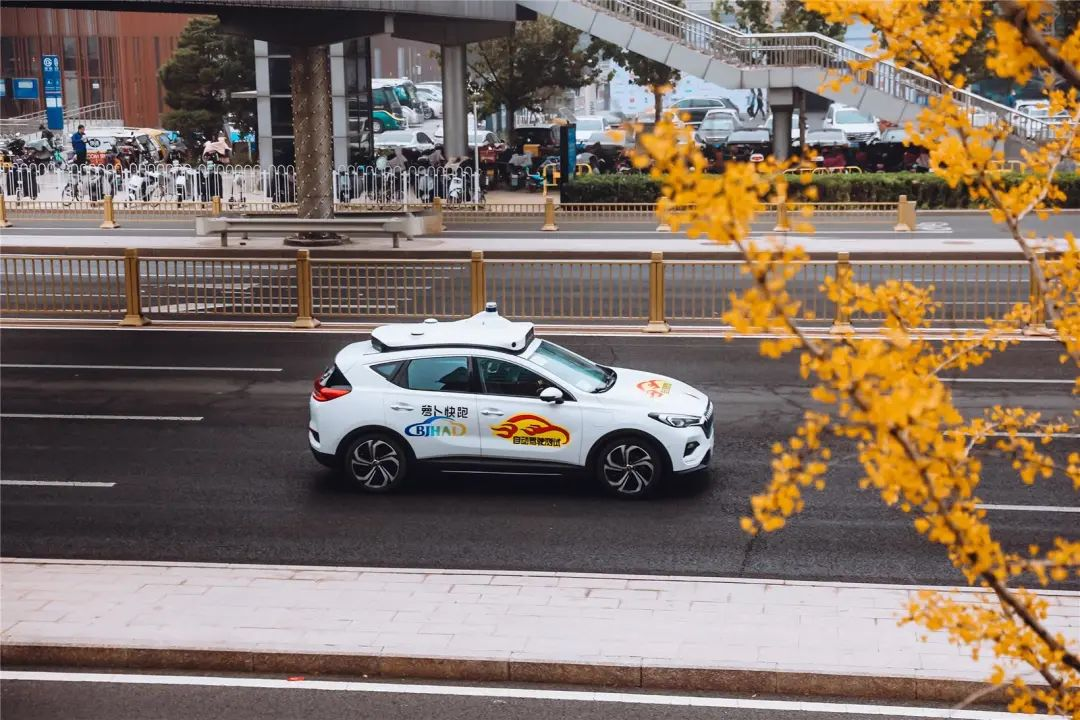Beijing city plans to deploy made-in-China C-V2X “brains” for real-life application in the Beijing High-level Automated Driving Demonstration Area (BJHAD) next year.
According to the Beijing Municipal Science & Technology Commission, the city will complete tests and install 50 domestically developed multi-access edge computing devices (MEC devices) onto the smart road poles in the BJHAD before August 2023. The devices will act as the eyes and ears for autonomous vehicles, helping accelerate the development of C-V2X applications.
Acting as the brains for C-V2X systems, MEC devices usually feature a high cost of roughly 200,000 yuan per unit. In an effort to realize localized development and production of said devices, Beijing formulated a project, of which Baidu took the leading role in developing such device with the help from Inspur and Beijing Smart City Network Co., LTD.
Liu Changkang, vice president of Baidu's Intelligent Driving Group, said that the technical team has cooperated with relevant domestic enterprises to tackle technical problems through hardware and software reconstruction and localization. Currently, the overall design of MEC hardware has been completed, and seven core modules including motherboard, AI computing chip, and network switching have been specially designed.
The city is expected to save 150 million yuan ($21.5 million) through the project, so that the domestically-made MEC devices can save 150,000 yuan ($21,500) per intersection on a 1,000-intersection scale.
In China, central governments and local governments are actively promoting the development of Cellular Vehicle-toEverything (C-V2X) technology and industry. China has made remarkable progress in the practice of the Connected Vehicles (CV) industry. Focusing on the construction of test Pilot and Demonstration Areas, provinces and cities across the country have carried out large-scale and multiple-scenario CV applications and built a number of Cooperative Vehicle Infrastructure System (CVIS) application/demonstration zones with integrated regional advantages and characteristics. In order to promote Intelligent Connected Vehicle (ICV), the C-V2X industry, and Smart City Infrastructures and ICV, China has approved three types of Pilot and Demonstration Areas: (1) China has built four National Pilot Areas for CV, including Wuxi City in Jiangsu Province, Xiqing District in Tianjin Municipality, Changsha City in Hunan Province and Liangjiang District in Chongqing Municipality. (2) Ministry of Industry and Information Technology (MIIT), Ministry of Transport (MOT), and Ministry of Public Security (MPS) have actively promoted and cooperated with local governments to support the construction of 18 ICV Demonstration Areas in Shanghai, Beijing, etc. Different climatic conditions and geomorphic characteristics are considered in order to carry out tests under diverse conditions. (3) The Ministry of Housing and Urban-Rural Development (MoHURD) and MIIT approved two batches of 16 Pilot Cities – including Beijing, Shanghai and Guangzhou – for the coordinated development of Smart City Infrastructures and ICV.
Post time: Jan-03-2023










